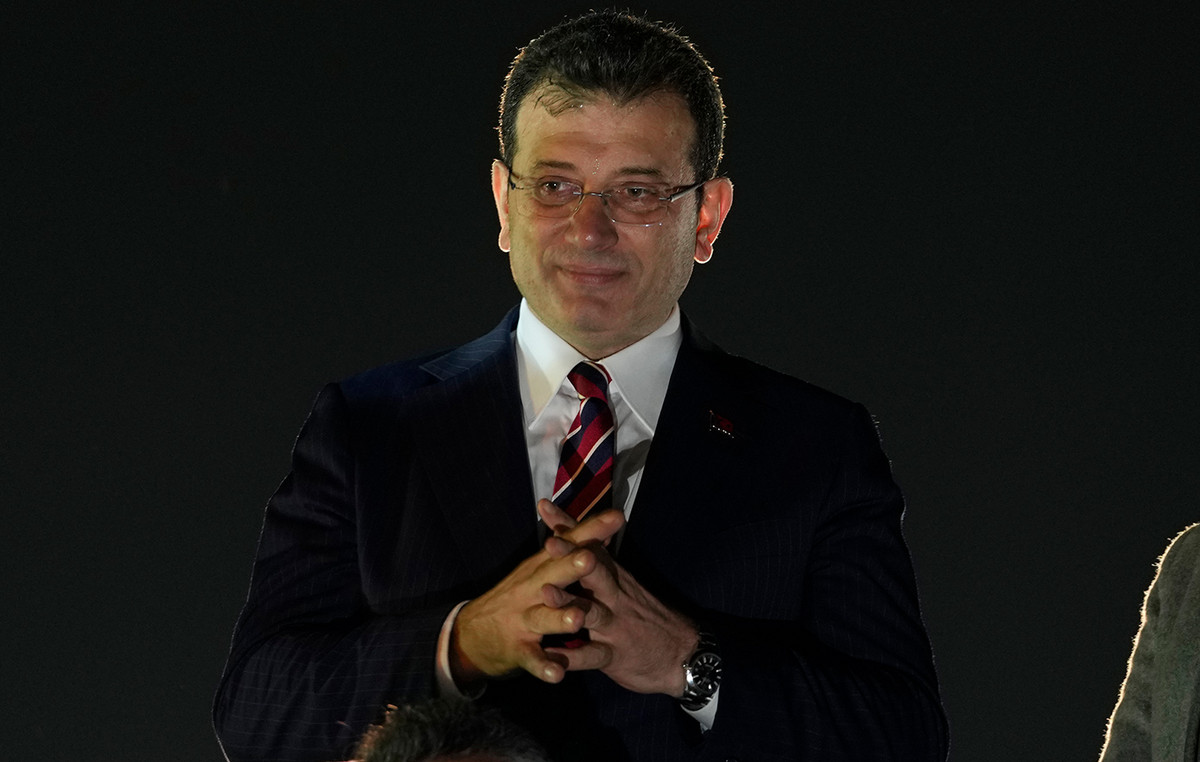It’s impossible not to be impacted by the meek and, at the same time, powerful way that Silvio Luis de Almeida carries in his walk and in his speech. Anyone who sees him arriving for the interview might even think that he is facing a very powerful entity or an orixá of African matrix religions. And, if that were the case, we would be facing Xangô, the orixá of justice and wisdom in the Candomblé and Umbanda religions.
A presence that carries a paralyzing speech, which he was aware of this force even in high school.
“The first time I felt the strength of my voice was at my high school graduation and I was chosen to be valedictorian. I remember I was very nervous and the feeling of having made it to the end, of not having stumbled over words. I remember people applauding and getting emotional. Then I realized how much strength my voice could have, it could touch people’s hearts”, reveals Silvio Almeida, Minister of Human Rights and Citizenship in an interview with “Vozes Pretas” this Saturday (13).
The minister, who is also a professor, lawyer and writer, is now aware of the responsibility his voice carries. And even with the awareness of this vocal power, he still defines himself as someone in search of understanding.
“Silvio Almeida behind the suit, behind the positions and titles, is a man, a human being in search of understanding, in search of understanding the world and understanding himself”, that is how he defines himself.
Also known for being a combatant of structural racism in the country – he is even the author of a work that is a reference on the subject – Silvio Almeida also presides over the Luiz Gama Institute, which bears the name of one of the greatest Brazilian abolitionists.
“A man who not only fought for the abolition of slavery in Brazil, but also fought, as he himself said, for a world without kings and without slaves and which believed in freedom.”, he says.
“We need to abolish the way of existing that always condemns us to live in a limited way and also that makes us live under the permanent yoke of oppression.”
Inequality, according to the minister, is the main point that needs to be abolished in the world in order to advance on racial issues, since it is an “economic system of profound exploitation, which prevents people from existing at their maximum potential”.
For Silvio, racism is a way of establishing social, political, and economic hierarchy criteria as well. But despite this, it is important to highlight and recognize Brazilian black resistance.
“To think that black resistance in the US is greater than in Brazil is a mistake. If it weren’t for the black resistance in Brazil, with all the racist violence here that still exists today, people like me wouldn’t be here.”
Appointed Minister of Human Rights and Citizenship in the Lula government, Silvio Almeida is today one of the most significant people in black political representation in the country. Today, he occupies an important space of power, despite not liking the term “occupying space”.
“One can occupy space simply to make things change or stay the same. So, it is not enough just to occupy the space. It is important to think about how you are and from what perspective you are in these places, because there are some spaces that we have to be in to radically transform. But more important than occupying them is transforming them.”
Because of the football that I am here, football also guides my Brazilianness
Corinthian at heart, Silvio Almeida has a very personal relationship with football.
“In my trajectory, football has everything to do with me, because of the relationship it has with my family. My father was a soccer player, he was a goalkeeper for one of the most important teams in Brazil”
The black voices that inspired him
Silvio Almeida is also heavily influenced by his family in his career. It was the first black voices that inspired him, mainly the voices of the black women in his family, like his aunts.
“I would say that the voice of women was very central to understanding the black struggle in Brazil as well”, describes the minister, who also cites other black voices that inspired him.
“The voice of Tia Ciata, the voice of Elza Soares, the voice of Guerreiro Ramos, the voice of Abdias do Nascimento, the voice of Clóvis Moura… The voice of Angela Davis, the voice of Malcolm X, Martin Luther King, the voice of Nelson Mandela. The voices of ancestry speak very loudly too, like the voice of Mãe Estela de Oxossi”, she says.
“We talk about the voice, we also talk about the word, that is, the voice that echoes in the ancestry, which, even if it has not been heard, is felt.”
Almeida highlights the plurality of black voices that are crucial. Including those who cannot be heard. And it is precisely these voices that Minister Silvio Almeida wants to give a voice to.
“I would like to give a voice to those who have no voice, no time. I would like to give voice to those who are prevented from speaking, those who are prevented from singing. Those who have waited a long time, including those who are no longer with us, so that through our voice, their voice, which was silenced, can now be heard.”
Do I consider myself a modern abolitionist?
To answer this question, the minister makes use of the words of a great thinker, who had a lot of influence in his life, the French thinker Jean Paul Sartre.
“I think that what I am is in permanent construction and what I am will be defined by those who look at me, when I am no longer here”.
And, in the same meek and powerful way that he talks, “our Xangô” modestly ventures to say what his path in this world might be.
“It will be the story that will tell, the future that will tell. This will be said by people who will certainly be able to look back on my trajectory.”
Source: CNN Brasil
I’m Robert Neff, a professional writer and editor. I specialize in the entertainment section, providing up-to-date coverage on the latest developments in film, television and music. My work has been featured on World Stock Market and other prominent publications.







